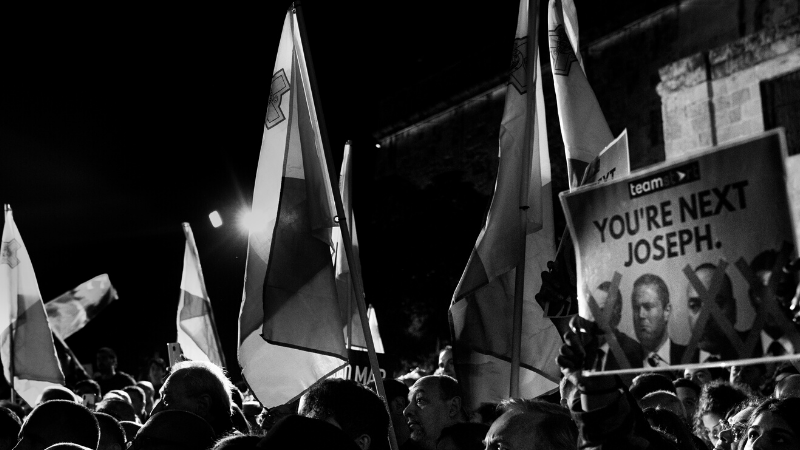The details revealed by the public inquiry into Maltese journalist Daphne Caruana Galizia’s assassination have raised alarming concerns about political involvement, systemic corruption, and attempts to pervert the course of justice by shielding those involved from scrutiny. Before the public inquiry’s scheduled hearing this month, we take a look at the key outcomes last year.
The rot is most evident in the police, the politicians, and the bureaucracy. The subservience of top police officials to top politicians paints an alarming picture of institutional failure in a country where the powerful enjoy impunity from prosecution for crimes ranging from corruption to — quite possibly — assassination.
The utter rot in these three sectors — the police, bureaucracy and politicians — taken together created an environment where Daphne could be killed in broad daylight just down the road from her home, and where those responsible could subvert justice by covering up their involvement.
The year ended on a discouraging note, as the Special Rapporteur for the Parliamentary Assembly of the Council of Europe, Pieter Omtzigt, reached the end of his mandate. Omtzigt was a pivotal figure in forcing disgraced former Prime Minister Joseph Muscat to establish the inquiry and the strongest voice in Europe in the fight for justice for Daphne.
He pointed out on Twitter: “In a few months, the Daphne Caruana Galizia inquiry has done more to expose the corruption, misgovernment and criminal conspiracies that plagued Malta at the time of her death than all of the endless, opaque and ineffectual magisterial inquiries put together”.
Unfortunately, rather than prompt self-examination followed by desperately needed institutional change, the inquiry’s success has made it a target of the government.
Instead of acknowledging the board members’ offer to relinquish their honorarium for service rendered to the country, Prime Minister Robert Abela chose to attack them. This was followed by a terse official statement warning, “The board has to assume responsibility for its decisions and its consequences.”
We enter 2021 with a public inquiry board determined to continue the fight for justice— and a Labour government determined to do everything it can to derail that fight while clinging to power.
It remains unclear which way this struggle will go.
Read the full story published by the Justice for Journalists Foundation as part of the weekly roundups prepared by The Shift.














The primary fight for justice must be in the criminal courts. In any normal country the inquiry would not even have started until convictions had been secured because of the very real danger of prejudicing the criminal case. This warning should be taken very seriously as the final decisions will more than likely be taken at the European courts which will judge on the merits without paying much heed to sociopolitical considerations, in contrast to Maltese courts. There are several examples of this being the case whenever Maltese court decisions are challenged at the ECJ.
Well done to The Shift News for persisting with its reporting and investigations. I have a feeling 2021 is going to reveal a lot of truths and facts. Can’t wait!